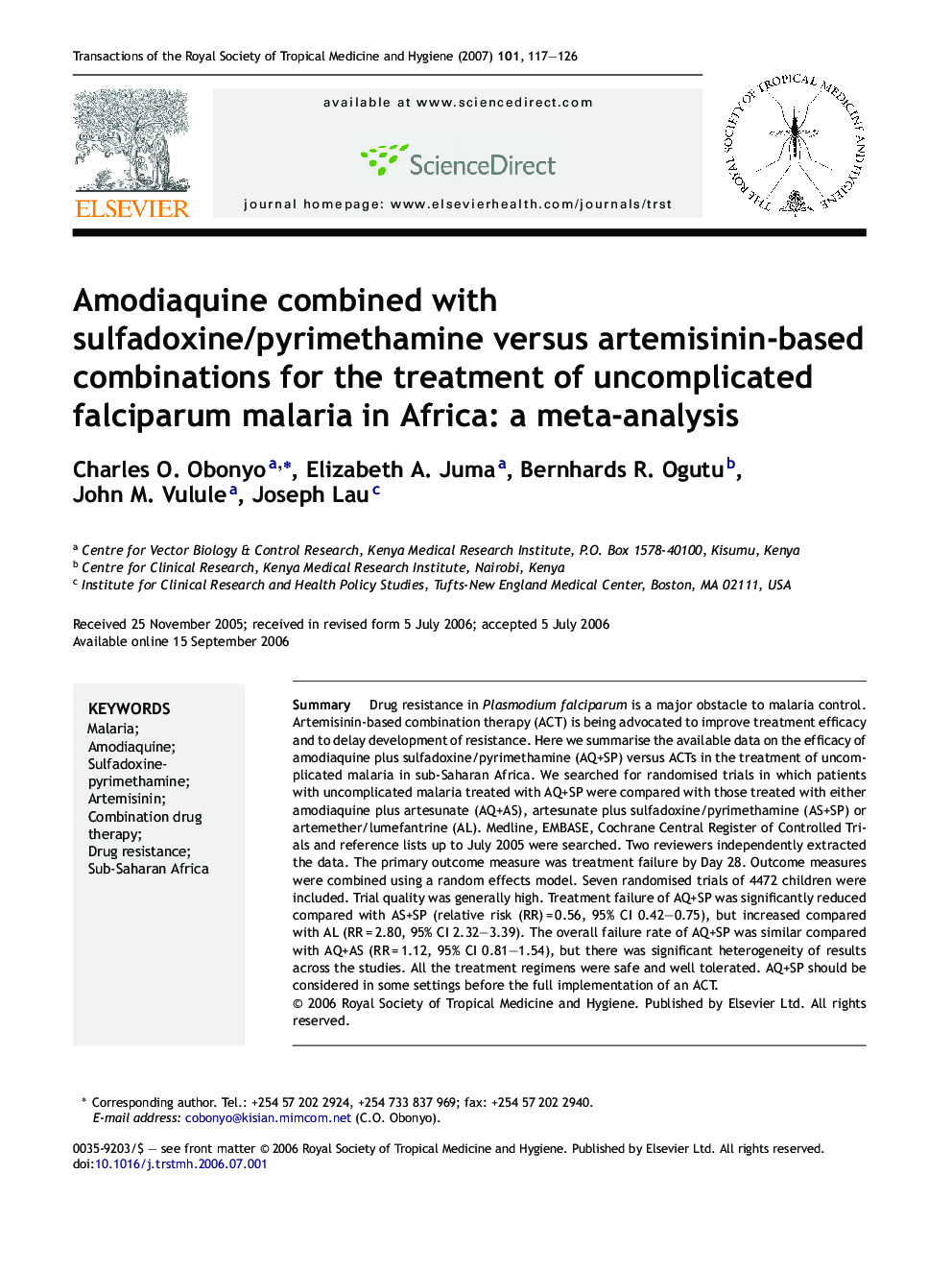| Article ID | Journal | Published Year | Pages | File Type |
|---|---|---|---|---|
| 3420951 | Transactions of the Royal Society of Tropical Medicine and Hygiene | 2007 | 10 Pages |
SummaryDrug resistance in Plasmodium falciparum is a major obstacle to malaria control. Artemisinin-based combination therapy (ACT) is being advocated to improve treatment efficacy and to delay development of resistance. Here we summarise the available data on the efficacy of amodiaquine plus sulfadoxine/pyrimethamine (AQ+SP) versus ACTs in the treatment of uncomplicated malaria in sub-Saharan Africa. We searched for randomised trials in which patients with uncomplicated malaria treated with AQ+SP were compared with those treated with either amodiaquine plus artesunate (AQ+AS), artesunate plus sulfadoxine/pyrimethamine (AS+SP) or artemether/lumefantrine (AL). Medline, EMBASE, Cochrane Central Register of Controlled Trials and reference lists up to July 2005 were searched. Two reviewers independently extracted the data. The primary outcome measure was treatment failure by Day 28. Outcome measures were combined using a random effects model. Seven randomised trials of 4472 children were included. Trial quality was generally high. Treatment failure of AQ+SP was significantly reduced compared with AS+SP (relative risk (RR) = 0.56, 95% CI 0.42–0.75), but increased compared with AL (RR = 2.80, 95% CI 2.32–3.39). The overall failure rate of AQ+SP was similar compared with AQ+AS (RR = 1.12, 95% CI 0.81–1.54), but there was significant heterogeneity of results across the studies. All the treatment regimens were safe and well tolerated. AQ+SP should be considered in some settings before the full implementation of an ACT.
